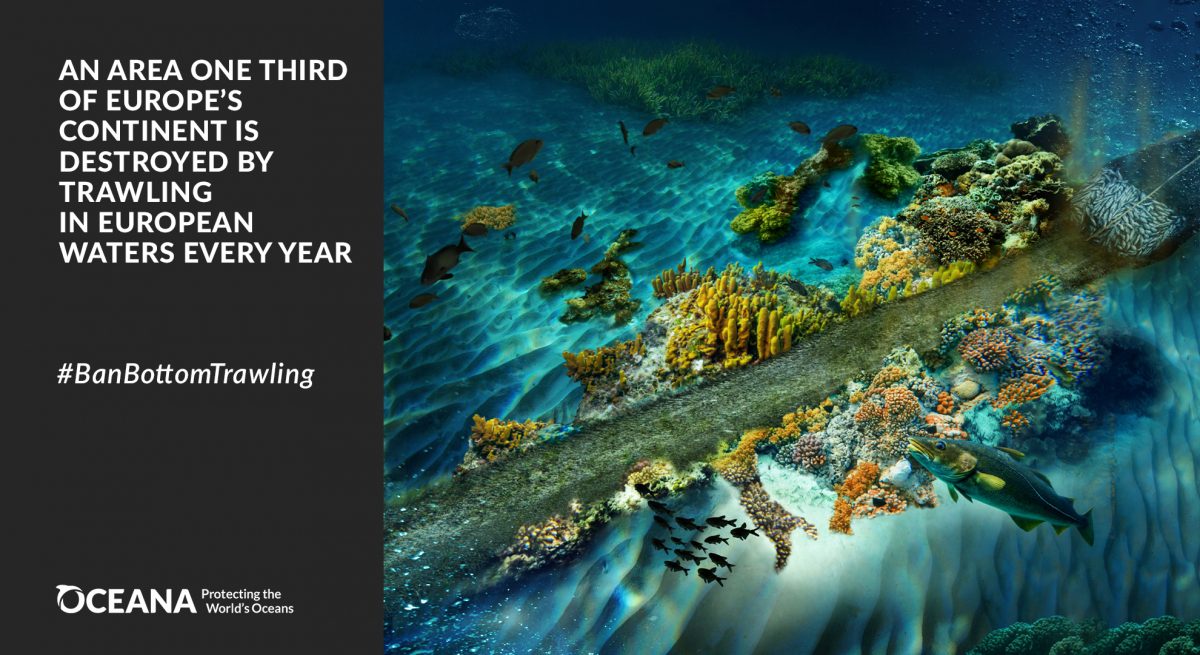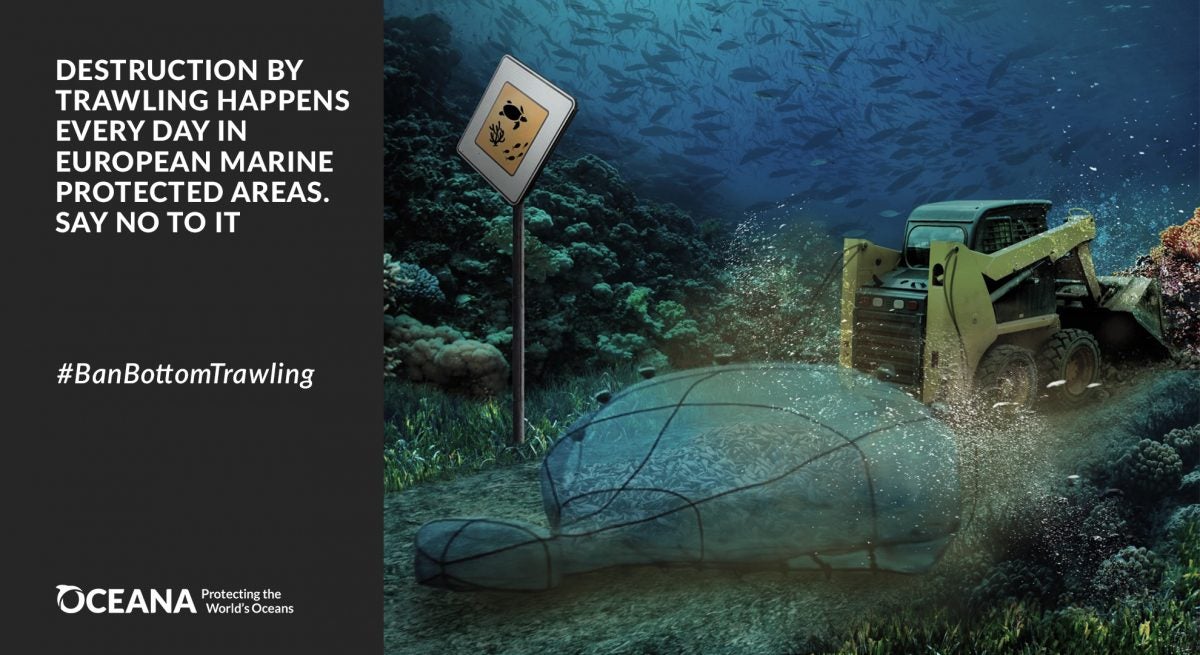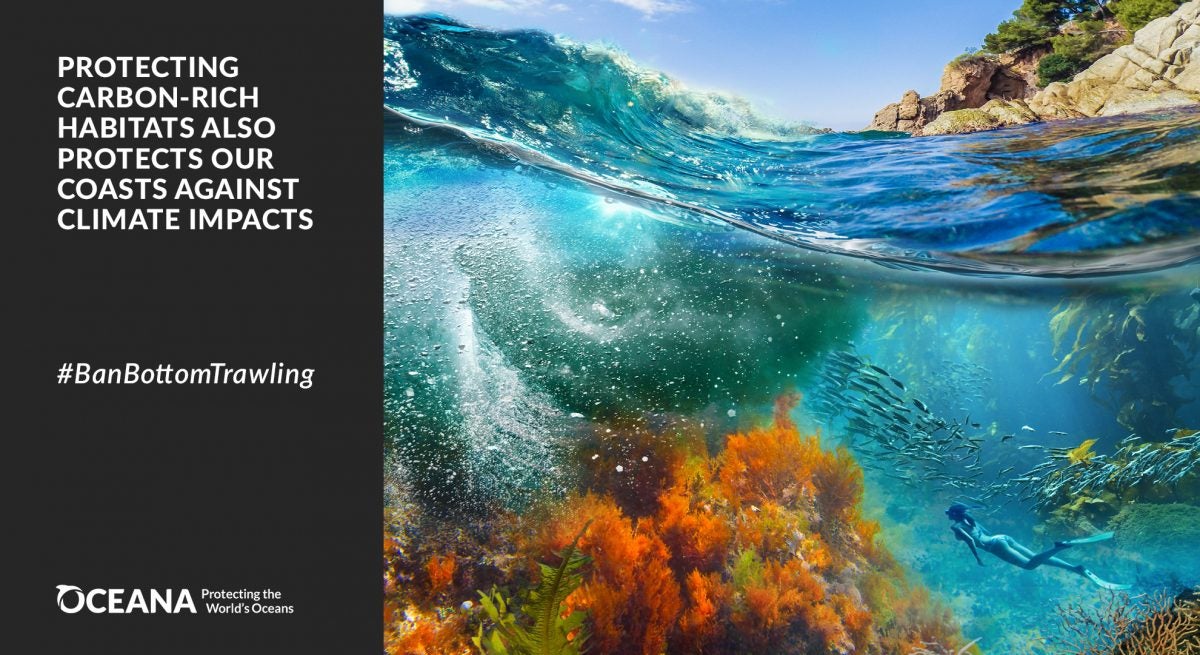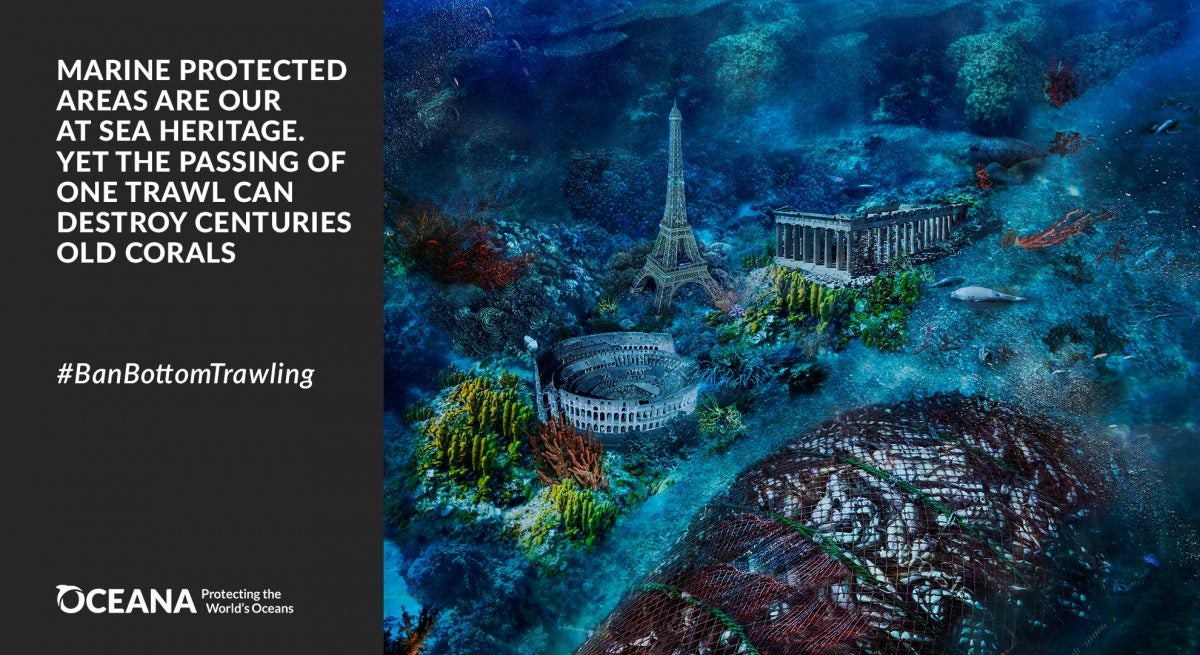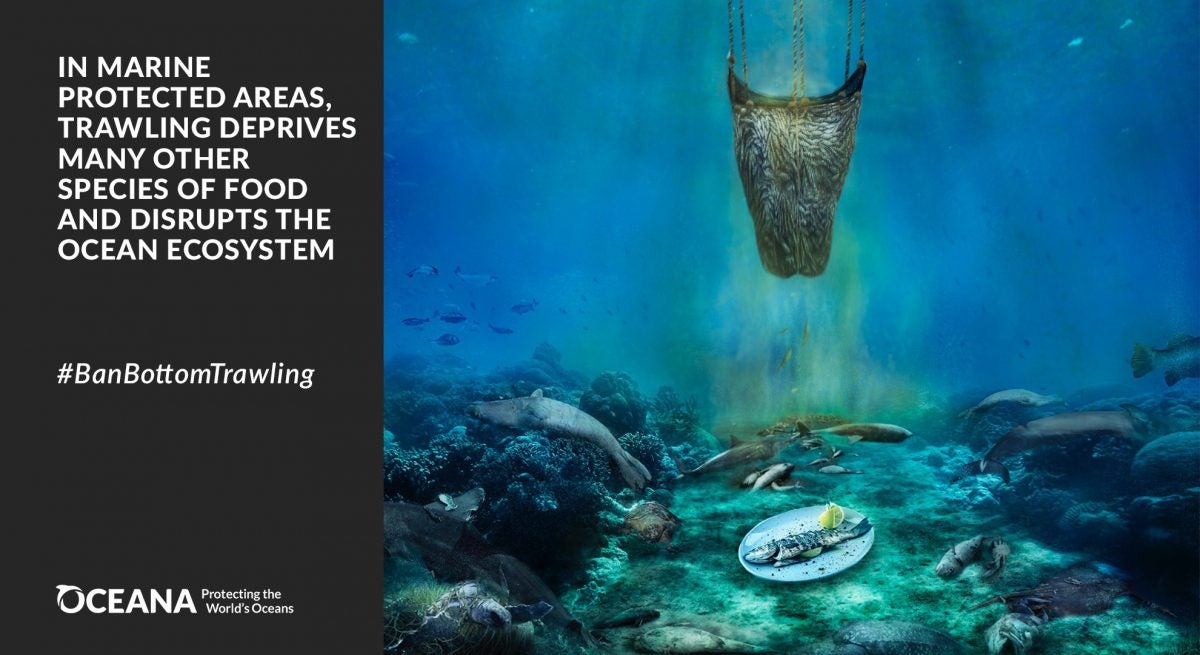Overview
An area one third of Europe’s continent is impacted by bottom trawling every year. Bottom-towed gear is widely used in the EU, including inside Marine Protected Areas, with some studies indicating a higher intensity of trawling inside than outside protected areas. An Oceana study showed that destructive fishing, including bottom trawling, affects 86% of the area designated under Natura 2000 to protect marine habitats. To achieve the target of protecting 30% of Europe’s waters by 2030, decision-makers at EU level must lead by example and ban bottom trawling in all MPAs.
Interactive map showing the extent of bottom trawling across 7 EU countries – part of an EU-wide campaign to ban trawling in MPAs launched by Oceana, Seas At Risk and Only One
To see the map in Spanish, click here.
According to a recent report, 4.4 million hours of apparent bottom trawling took place inside MPAs across seven EU countries between 2015-2023 – equivalent to more than 500 years’ worth of trawling. This was compiled using Global Fishing Watch data, calculating the breadth and hours of fishing activity in Denmark, Germany, Ireland, the Netherlands, Portugal, Spain, and Sweden.
The extensive use of bottom trawling in commercial fishing is highly harmful for marine ecosystems, often resulting in irreversible damage to sensitive habitats (such as maërl beds, coralligenous reefs, deep-sea coral reefs, gorgonian gardens and sponge grounds). Bottom trawlers discard fish back into the water at high rates, often juveniles of both valuable species, and of species of low or non-commercial interest but which are nevertheless important for ecosystem balance.
Bottom trawls are so destructive and unselective because they effectively clear-cut, everything living on the seafloor, like bulldozers. Trawls drag large, heavy nets across extensive areas of the seafloor to catch fish, such as cod, shrimp, hake, sole and anglerfish, that live on or near the sea bottom.
The serious damage caused by bottom trawling also impacts fragile ecosystems like cold-water corals. Once coral and sponge communities are destroyed, commercial fish and other species that depend on them for spawning, shelter, nurseries, protection and food, may also disappear.
In addition, bottom trawling is a climate change disaster. Not only is it very fuel-intensive, with an overall carbon footprint almost three times higher than non-trawl fisheries, but it also disturbs the seabed and releases large amounts of carbon stored in sediments into the sea.
Oceana campaigns to transition away from destructive fishing practices like bottom trawling, calling to prohibit it in all MPAs, but also in other sensitive areas like the deep-sea and coastal zones. Phasing out bottom trawling is essential for transitioning towards more sustainable, low-impact, low-carbon fishing in the EU and for giving small-scale fishers preferential access to fishing areas, and thus helping to restore vibrant coastal communities.
Take action!
As part of our #BanBottomTrawling campaign, we are providing you with the following set of visuals so you can help us spread the word and put an end to this harmful fishing practice that bulldozes the seabed.
The visuals may be used alone online or on social media. Please right-click on an image to view it in another window. To download, simply right-click on the image and choose the “save image as” option.
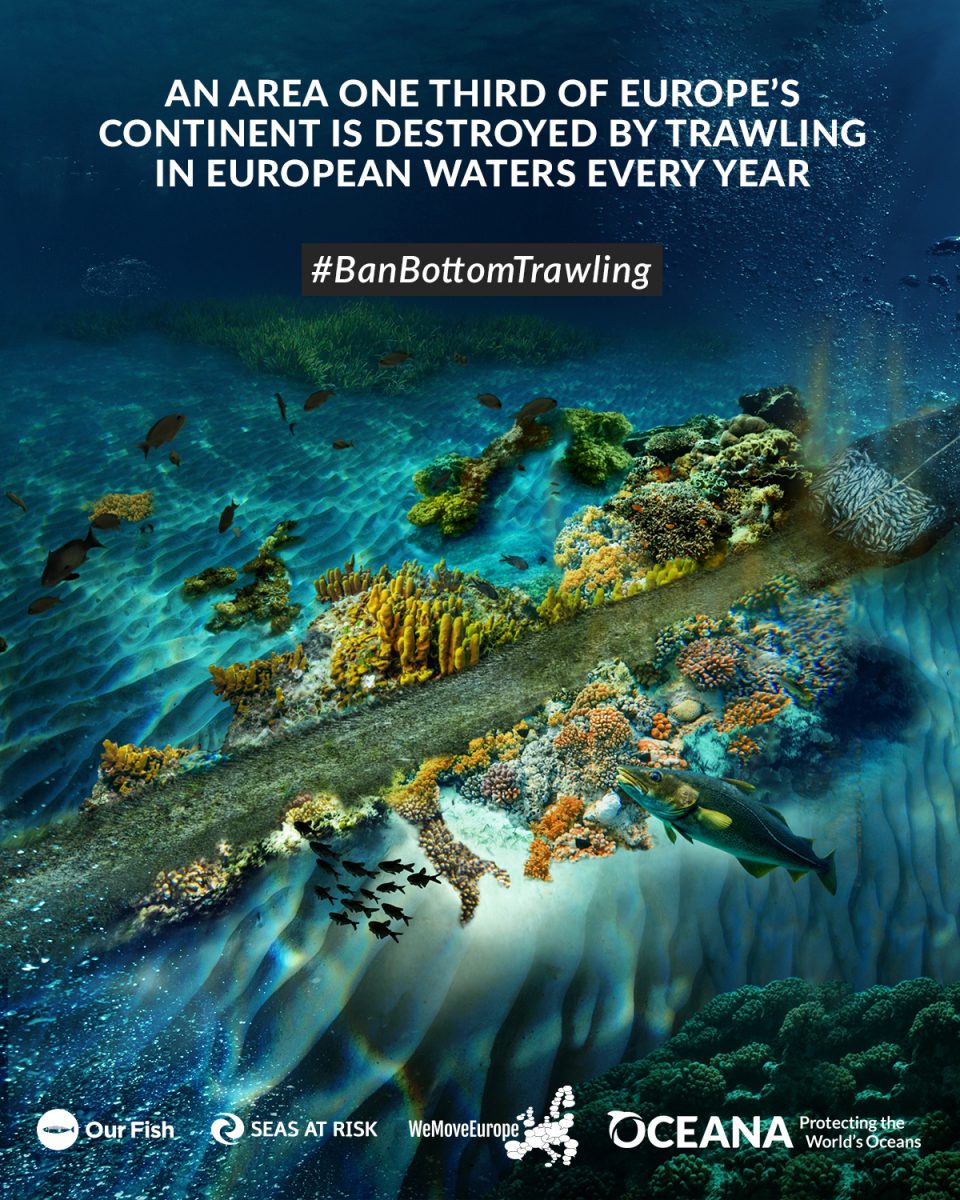 |
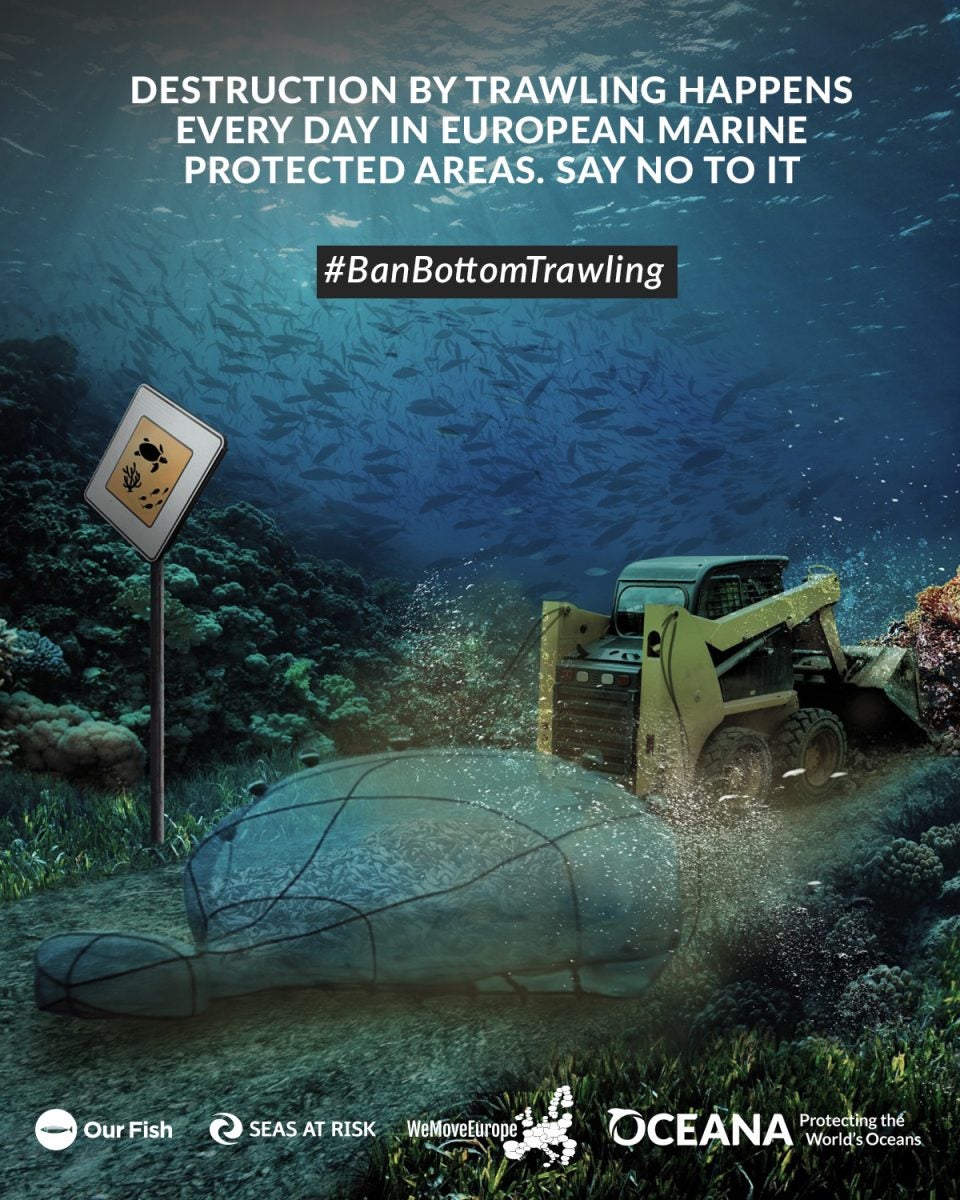 |
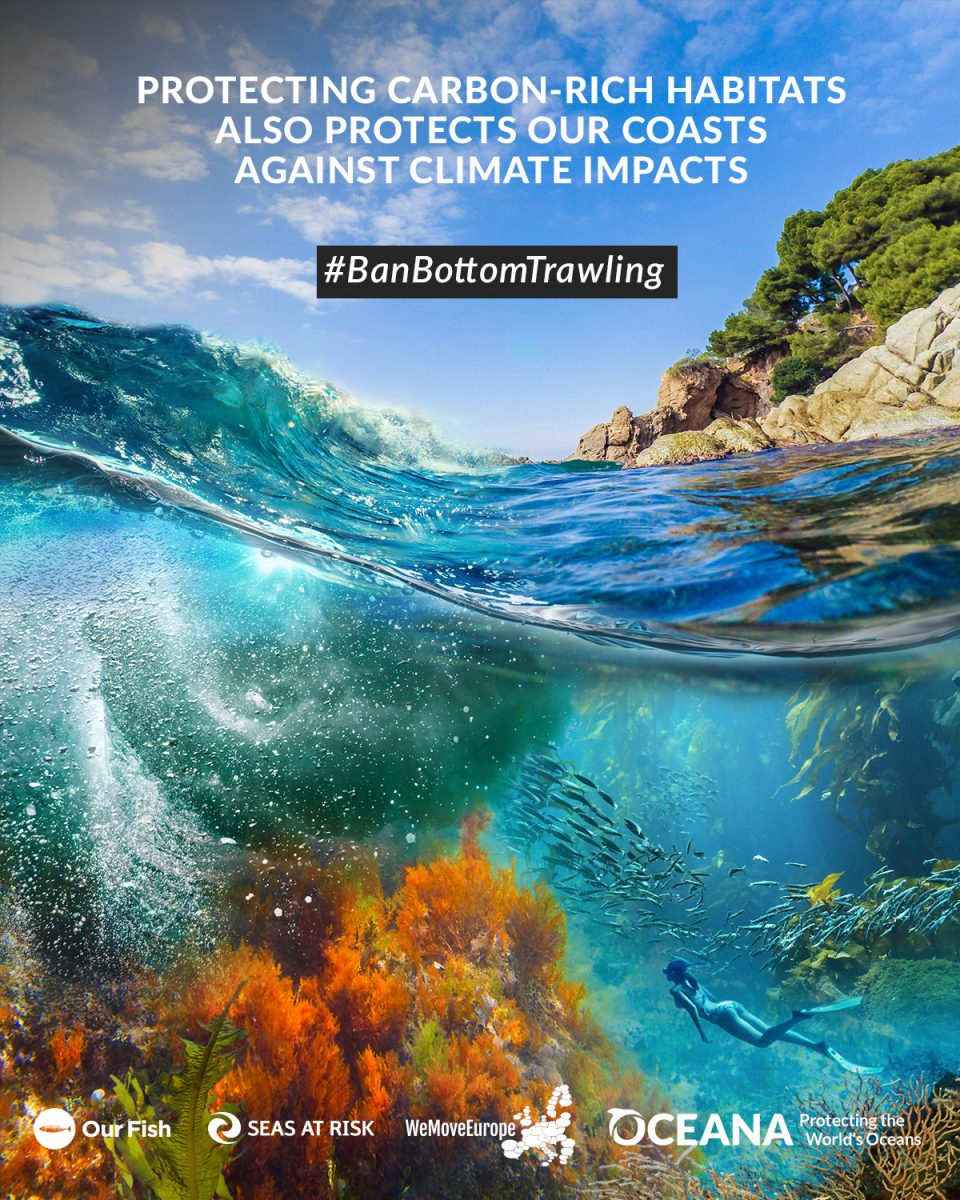 |
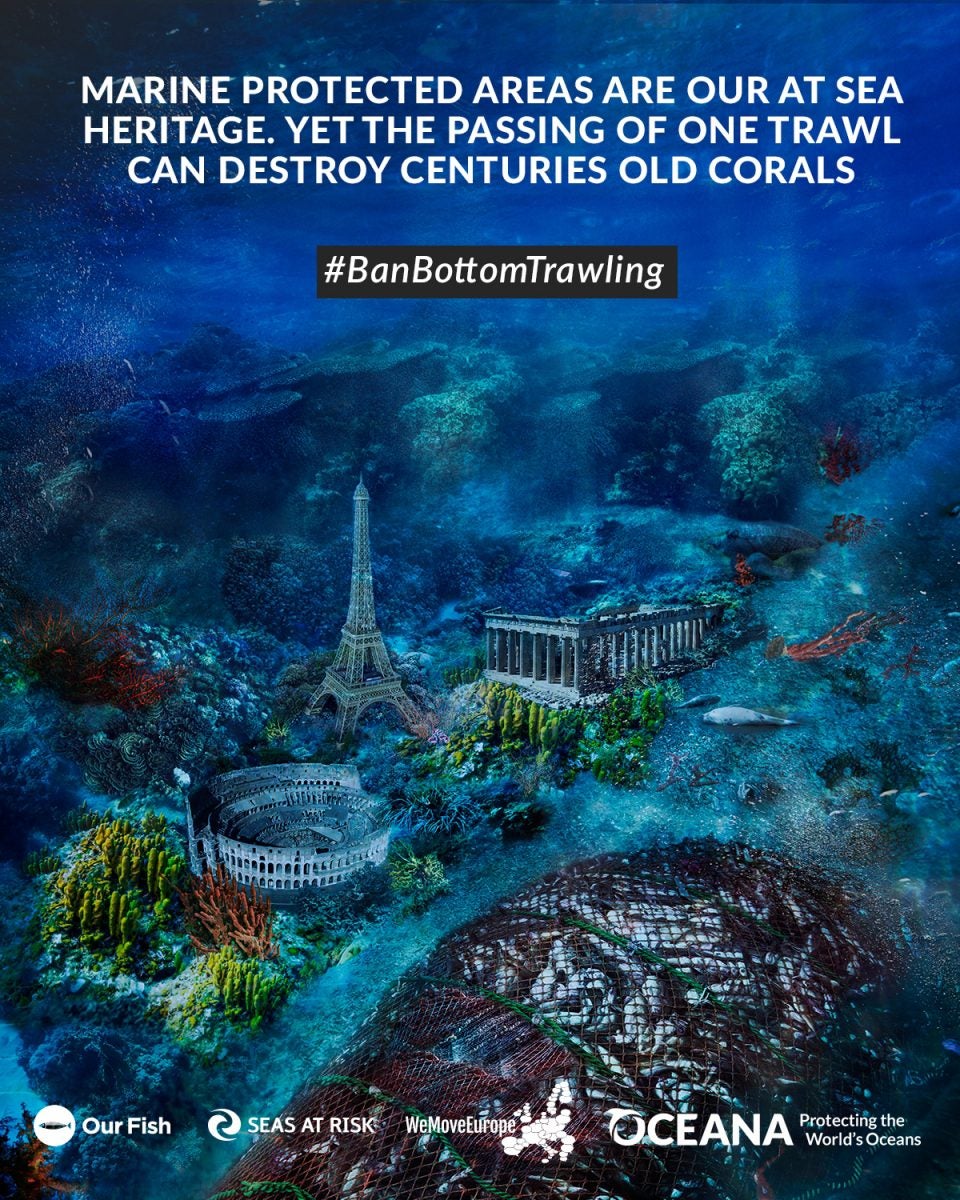 |
 |

